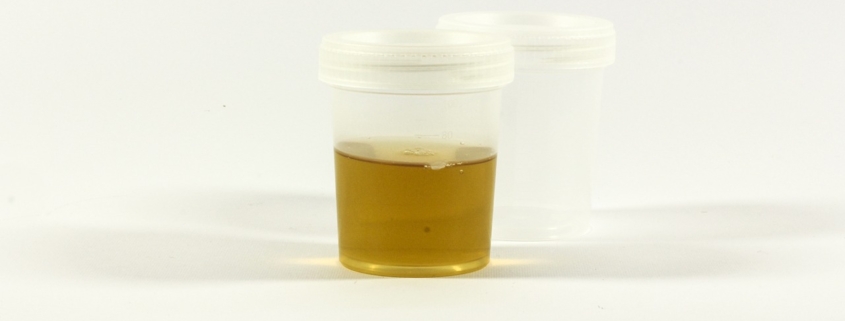Delta-8 Legality and Drug Tests: A Comprehensive Guide
Welcome to our comprehensive guide on the legality of Delta-8 and its impact on drug tests. In this article, we will delve into the intricate details surrounding Delta-8 THC, its legal status, and the potential implications for drug tests. Whether you’re a consumer, an employer, or simply curious about this cannabinoid, we’ve got you covered with valuable insights and up-to-date information.
Understanding Delta-8 THC
Delta-8 THC, or Delta-8 Tetrahydrocannabinol, is a naturally occurring cannabinoid found in cannabis plants. It is chemically similar to Delta-9 THC, the primary psychoactive compound in marijuana, but with some structural differences. Delta-8 THC exhibits psychoactive effects but generally to a lesser extent than Delta-9 THC. This characteristic has piqued the interest of many consumers seeking a milder psychoactive experience.
Urine Analysis
Urine analysis stands as the prevailing method for drug testing, widely employed due to its effectiveness. This method is capable of identifying cannabis usage for a period of approximately 30 days following the last instance.
According to a comprehensive review conducted in 2017, the detectable duration of cannabis in urine is as follows:
- Single use: Up to 3 days
- Moderate use (four times per week): 5 to 7 days
- Chronic use (daily): 10 to 15 days
- Chronic heavy use (multiple times per day): Over 30 days
Blood Test
When it comes to blood tests, they generally only detect recent cannabis consumption within a window of 2 to 12 hours. However, in individuals who frequently and heavily indulge in cannabis use, traces of its presence have been identified even up to 30 days after usage.
Saliva Test
A saliva test possesses the ability to identify the presence of THC (the psychoactive component of cannabis) up to 24 hours after ingestion. Interestingly, a review conducted in 2020 with frequent cannabis smokers revealed that THC was still detectable in saliva up to 72 hours after use.
Hair Test
The examination of hair follicles allows for a prolonged detection window of THC, reaching up to 90 days after usage. This testing method works due to the fact that cannabinoids, following cannabis consumption, reach the hair follicles via blood vessels.
Legal Status of Delta-8 THC
The legality of Delta-8 THC is a complex and evolving topic. To assess its legality, one must consider federal and state laws. While Delta-9 THC is classified as a Schedule I controlled substance under the Controlled Substances Act (CSA) in the United States, the legal status of Delta-8 THC remains more ambiguous.
Federal Perspective: At the federal level, the 2018 Farm Bill legalized hemp-derived products, defining hemp as cannabis containing no more than 0.3% Delta-9 THC by dry weight. However, the bill does not specifically address Delta-8 THC, leaving room for interpretation.
State Regulations: State laws regarding Delta-8 THC vary considerably. Some states explicitly ban Delta-8 THC, while others allow its sale and consumption within certain parameters. It’s crucial to research and understand the specific regulations in your state before considering the use of Delta-8 products.
Potential Implications for Drug Tests
One critical concern for individuals using Delta-8 THC products is the potential impact on drug tests. Drug tests typically aim to detect the presence of Delta-9 THC and its metabolites. Although Delta-8 THC shares structural similarities with Delta-9 THC, it is chemically distinct and may not trigger the same metabolites in drug tests.
However, it’s important to note that drug testing methodologies can vary. Some tests may be designed to detect any form of THC, including Delta-8 THC, while others may solely target Delta-9 THC. To ensure accurate information, it is recommended to consult with a medical professional or the testing facility regarding their specific testing protocols.
Navigating the Legal Landscape
Given the varying legal status of Delta-8 THC and the potential impact on drug tests, it is essential to navigate the legal landscape responsibly. Here are some key considerations:
- Research State Laws: Familiarize yourself with the laws and regulations pertaining to Delta-8 THC in your state. Stay updated on any changes or clarifications that may arise.
- Product Source: Ensure that you are purchasing Delta-8 THC products from reputable sources. Look for third-party lab testing results to verify the product’s composition and ensure compliance with legal requirements.
- Employer Policies: If you are subject to drug testing due to employment, review your employer’s policies regarding THC use and the specific substances they test for. Understanding their stance can help you make informed decisions.
- Open Communication: If you have concerns about Delta-8 THC use and drug testing, discuss them openly with your employer, human resources department, or healthcare provider. Transparency can help avoid any potential misunderstandings or conflicts.
Conclusion
As the popularity of Delta-8 THC grows, so does the need for accurate information about its legality and implications for drug tests.
FAQ’s Delta 8
- What is Delta 8? Delta 8 is a minor cannabinoid found in the cannabis plant. It is chemically similar to Delta 9 THC, but with some structural differences that result in distinct effects.
- How is Delta 8 different from Delta 9 THC? Delta 8 and Delta 9 THC have similar chemical structures but differ in the placement of a double bond. This difference in structure leads to differences in their psychoactive effects and legal status.
- Is Delta 8 legal? The legality of Delta 8 varies by jurisdiction. In some places, it is legal, while in others, it may be regulated or prohibited. It’s essential to check the specific laws in your location before purchasing or using Delta 8 products.
- What are the effects of Delta 8? Delta 8 is known to have psychoactive effects, but they are generally considered to be milder compared to Delta 9 THC. Users often describe the effects as a relaxed and euphoric state with less anxiety or paranoia.
- How is Delta 8 consumed? Delta 8 can be consumed in various forms, including vape cartridges, edibles, tinctures, and topicals. The method of consumption can affect the onset time and duration of the effects.
- Can Delta 8 cause a positive drug test? Yes, Delta 8 can potentially cause a positive drug test for THC. Most drug tests look for the presence of THC metabolites, and Delta 8 THC can be converted into these metabolites.
- Are there any potential side effects of Delta 8? While Delta 8 is generally well-tolerated, some users may experience side effects such as dry mouth, dry eyes, dizziness, or increased heart rate. It’s important to start with a low dosage and monitor your body’s response.
- Can Delta 8 be used for medical purposes? There is ongoing research to determine the potential medical benefits of Delta 8. However, it’s important to note that it is not approved as a medicine by regulatory authorities at this time.
- Is Delta 8 addictive? Delta 8 has the potential for addiction, especially if used excessively or in high doses. It’s important to use Delta 8 responsibly and avoid developing a dependency on it.
- Where can I buy Delta 8 products? Delta 8 products are available in some cannabis dispensaries, online retailers, and specialty stores. However, it’s crucial to ensure that you are purchasing from a reputable source that follows quality control standards.










